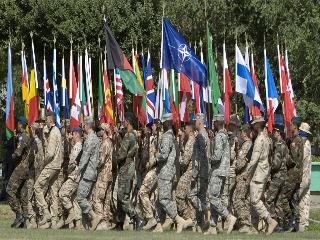Russia Advances Its Position in the South Caucasus
By Armen Grigoryan (the 13/11/2013 issue of the CACI Analyst)
Russia continues to limit Armenia’s capability to make independent political decisions and is planning to increase its military presence in Armenia. Shortly, Azerbaijan and Georgia will face stronger pressure and Russia’s efforts to create a new union of the former Soviet republics will intensify. As Russia is unable to advance its goals through “soft power,” offering no attractive model of governance, democratic political culture, or serious economic benefits, it will increasingly rely on “hard power.” Regional policies devised by the U.S. and EU are becoming insufficient as regional dynamics change and new threats emerge.

Azerbaijan Prepares for Shah Deniz 2
By Mina Muradova (the 13/11/2013 issue of the CACI Analyst)
Azerbaijan is moving from words to action in delivering gas resources from the Caspian Sea to European markets. President Ilham Aliyev has taken the development of the Southern Gas Corridor under his own supervision. A State Commission chaired by First Vice-Premier Eyub Yagubov has been established by a presidential decree and will be responsible for coordinating all issues related to the Shah Deniz project on a government level, as well as the implementation of the South Caucasus Pipeline Expansion Project, the Trans-Anatolian gas pipeline (TANAP) and the Trans Adriatic pipeline (TAP).
“CACI Analyst, October 30, 2013”
NATO in Afghanistan – Paralysis as Policy?
By Richard Weitz (the 30/10/2013 issue of the CACI Analyst)
NATO’s inability to commit to a definite role in Afghanistan beyond 2014, along with perceived strategic setbacks in Central Asia and the South Caucasus, are reinforcing the narrative promoted by the Taliban, al-Qaeda, Iran, and to a lesser extent Russia and China, that a war-weary West is abandoning Eurasia. Urgent measures are needed during the next months to reverse this perception before it gains irreversible momentum. The perception is already leading regional players to hedge against the expected consequences of a diminished NATO role. NATO needs to reaffirm and clarify its commitment to Afghanistan and Eurasia.

Azerbaijan and Armenia Stockpile New Weapons
By Bakhtiyar Aslanov (the 30/10/2013 issue of the CACI Analyst)
Since the 1994 cease-fire agreement between Azerbaijan and Armenia, negotiations between the parties have been overseen by the OSCE Minsk Group without any particular success towards peaceful solution. After the deadlock in peace negotiations over the Nagorno-Karabakh conflict in 2011, Azerbaijan and Armenia both accelerated their stockpiling of arms and intensified their public rhetoric of preparing for a new war.


